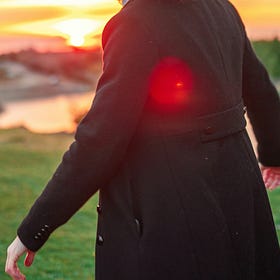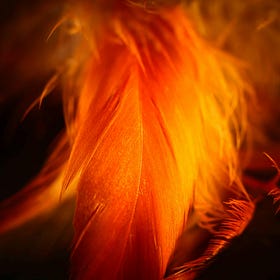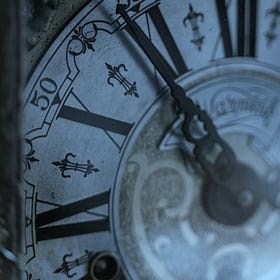Toiling over his homework, Robin grinned, spying the blossoming trees outside tapping hello on his window. Spring burst pink from every branch.
Equations glared up from the page, checking his enthusiasm. Play and adventures in the green were finished. Childish weeds must be pulled up by the root, his father said, and he meant it.
His school’s spring production, A Midsummer Night’s Dream, would be his last. He would never play Puck, or anyone else, again.
A queasy sting filled the space behind his heart. Scrunching his eyes closed, Robin struggled to recall the stories he’d written. His notebooks, sketchbooks, fairy tales, plays, and costumes were all gone.
At his mother’s command, the housekeeper had swooped in with a box and bundled them off, leaving him with nothing but after-school tutoring, luncheons with the right families, interviews at the best academies, and the kinds of books that lulled his father to sleep after dinner.
It wasn’t getting older that bothered him. Robin beamed when he checked the mark of his height on the doorframe. And he’d cheered to lose his baby teeth, pinching the bloody prizes aloft, watching his mother’s face sour, and enjoying the ordeal all the more.
He imagined his parents embracing him, carting him off on picnics, slurping strawberry ice cream and listening to the brass band with him in the park. Liking him. Proud of him.
But the possibility of transforming into them—never drawing or writing or imagining out stories—labeling adventures a waste of time and believing it. Robin’s stomach dropped imagining it.
Leaning from his window, he clutched the knotted blooming branches, breathing in the sweetness, wishing against the hereditary curse on every silken petal.
The evening of the play arrived, and the performance triumphed. Robin’s parents applauded, sighing their relief. He could feel their exhalations all the way up onstage.
In the following bustle and congratulations, he gained permission to walk home as usual. His parents would meet him there.
Strolling with his castmates, he crossed the acreage between. Over the group’s laughter and post-performance relief, Robin caught a sound. He stopped, concentrating. The others trooped ahead.
There were notes. Tones like wind chimes wafting past his ears, circling his legs, beckoning from the woods.
Dropping his bag, he ran, hurried by the music.
He hesitated at the tree line. Glanced back. He’d never ventured into the forest. He wasn’t supposed to.
Music swelled, playing among the leaves like birds, hopping from branch to branch. Robin’s heart surrendered.
Bellflowers and buttercups scented the air, cupping pollen, painting the earth blue and yellow. Mulberry trees prepared to fruit. A grass-banked stream shimmered and skipped through the woods.
Music married stream, flowing, drawing Robin to a clearing.
At the center, a tree towered, giving off music like the sun shines rays. It stretched and swayed. The emerald of its leaves glowed in the sun, and pearlescent flowers bedecked every limb.
The blossoms flashed. Twinkled. Stars blooming from branches.
He approached and inhaled one flower’s perfume. It smelled of book pages. Of drawing pencils, paints, warm fields, and wooden swords. From beneath the other scents, the smell of his own pink-blossom tree wafted, pulling him back to the plea of his heart.
Squeezing his eyes shut, he wished again, hard enough for a forest of flowered trees.
When he opened them, he saw, dotted among the green, rubies set as in a crown. He reached up and plucked one.
Not rubies. Mulberries. Ripe when the others wouldn’t be for two months.
Robin poked it, rolling it in his palm, the red light reflecting on his fingers. In the translucent depths were seeds. More than he could count. The bumpy flesh smelled like the pearlescent flowers.
The tree was sharing itself with him.
Tones rose, echoing birds and the rustle of leaves, warming and cheering him.
Grasping the fruit between thumb and forefinger, Robin bit into the jam-sweet flesh.
The cage door of the grown-up world flew open, and the taste of air rushed in, savoring of clouds warmed by the sun.
Robin sang. He rose to meet the treetops and breathe the blue of the sky. Flying over grass and stream, he perceived the music of all living things, harmonizing with the tree.
Soaring, gliding on the air currents, he peered down at the woods. His home. His school. The town. The neighboring town and its better schools. It composed his whole world, and a bird could pass it without stopping.
Robin floated, on and on, borne on the setting sunbeams until the light of the moon glimmered.
He wanted this life for always.
Far below, he heard voices.
Worry, like a choking vine, sprouted. It was his father. His mother. Calling him back. He heard the high-pitched terror in their cries. They didn’t understand where he’d gone.
Sinking, Robin cleared the low clouds, hands tightening around his wings, pulling him out of the sky.
Thudding to the cold ground, he gasped. His eyes shot right and left. The tree was gone.
Lanterns glared in his face. Adult bodies swarmed the clearing, shouting, holding him.
He recognized his father’s voice. “I’ve got him. He’s alright.”
At home, he told them about the tree, begged them to come back with him and find it, promised them the fruit. They could all be happy together.
His parents stared, crying, holding his face, their brows furrowed.
He shouted, but his father shook him by the arms, his jaw tightening, his hold draining the boy of the memory of flight.
Days marched on, and spring waned. For the worry he’d caused, Robin was confined to his room.
Gray clouds seeped through the cracks in his heart. Memory of the enchantment dimmed.
At his desk, he toiled over his homework, smelling the pencil lead as it scratched the paper. He tried not to think of the tree.
The syruped fruit was lost. He hadn’t meant to throw the gift away, and now he would never find it again.
The flowering trees by his window tapped hello on the glass. Their petals were almost spent.
Robin heeded as branches waved, reaching, summoning him beyond the confines of the house into the forest. Their boughs curved, women waltzing with the wind.
A bird landed and sang to him from a twig. His namesake. A robin with its fire orange breast. The bird ascended, weaving, soaked in the sun’s rays, holding them up on his wings like a rock in a waterfall. Flowing, washing over the earth, they poured through the window, pooling at Robin’s hand.
Lifting his pencil, he gazed at the paper. The page of equations overflowed with branches and leaves. He hadn’t meant to draw it, but even in the drawing’s simplicity he knew it. He’d recognize the pearlescent tree if he didn’t see it in a hundred years.
Images bloomed in his mind. Of his mother and the creases between her brows, the tight-lipped smile that never raised her cheeks. Of his father’s hand sculpted into a scolding finger, his arms crossed.
It seemed impossible they’d ever been children. Picturing them loaded his stomach with the same groggy sadness as the sight of a baby bird fallen from its nest.
His mind flew to legend, to the rules of magical quests—knights in gleaming armor, third sons, children lost in the woods. The prize and home always lay at the end of a test.
Tracing the drawing with his finger, the fog in his heart cleared.
Even if his parents grew to hate him, he would write and paint and act and do what little bits he could to nurture what seeds remained in him. If no one cared, if no one saw, he would know. The tree would know.
Tears flooded his eyes.
Water dripping from his cheeks landed on the drawing. Under each drop unfolded a pearlescent flower from the penciled limbs, singing the music.
Robin smiled and laughed.
Taking up his pencil and scraping any surface he could find, he drew a forest of trees. Into the night he wrote—flowers, leaves, vines, streams, stones, winged and four-footed animals, sun, moon, and stars—in story, poem, and song.
Outside and in rushed into one. Robin rode the enchantment surging beyond his room.
In and through the house it flowed, every wood frame leafing, branching, and remembering how to be trees. New limbs poked through roof and windows. Roots blasted through the road and into the forest.
Glass blew away into sand. Water flowed, cool and crystalline, seeking paths and joining the stream.
Poppy, wild rose, bluebonnet, and buttercup jeweled the grass.
Twigs danced in wind that bore Robin up in flight and tickled his feet as he flittered.
Moonbeams rippled and swished. He splashed and drank their dewy beams, swimming in a sea of stars.
Sunrise blazed on the horizon, and he greeted the morning as the first of many to come.
Robin was changed. He was part of the making of forests, animals, water, and worlds yet to be, all united in the music of creation.
His old life had been a shadow. The new was the waking from long sleep after sickness.
He heard, as from atop a cloud, the voices of his parents calling him, their grief howling in the gale, but though he loved them, a chasm parted them.
Time for Robin had new meaning. He would sing balmy fragrance to the petals, tell stories of sugared peaches to the boughs, paint winged creatures on the air. His forest would thrive, and every year, on the first day of spring, he would nestle under the pearlescent tree grown from his drawing and feast on the fruit of creation.
If you enjoyed this story…
Summer
The moment she broke free of her mother’s womb, Annastasia succumbed to the cold. Wrapping her in wool and warming her in a clay pot beside a blistering stove, the midwives warned her parents to prepare themselves.
Winter
Winter came with nothing and took everything. That was its way. But year after year, Julia Nielsen, wrapped in baby-blue satins and flowered brocades, refused its entry. That was her way.
Feedback on this story was provided by
of Labyrinth Editing.Photo by ROBIN WORRALL on Unsplash.







What an incredible story. Captivating prose and lovely imagery. Robin is so precious.
What a beautiful story! Lyrical and poignant, with a message to everybody who wants to create wondrous things. Poetry in prose.